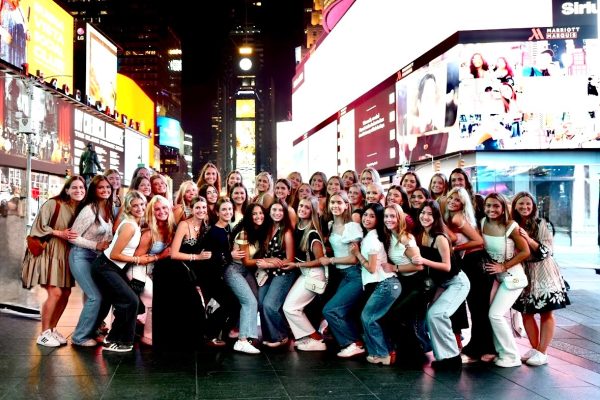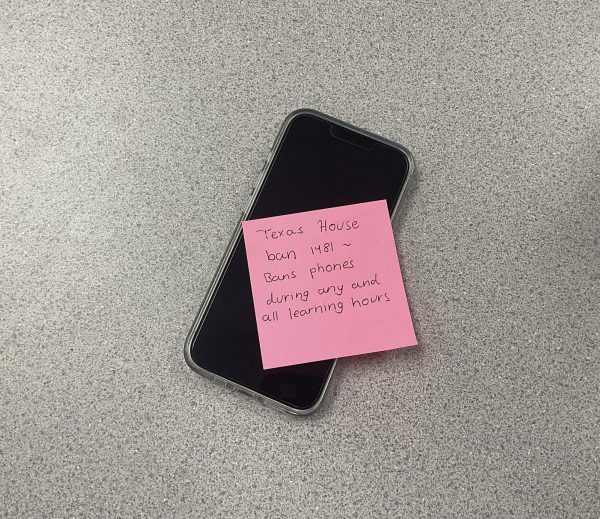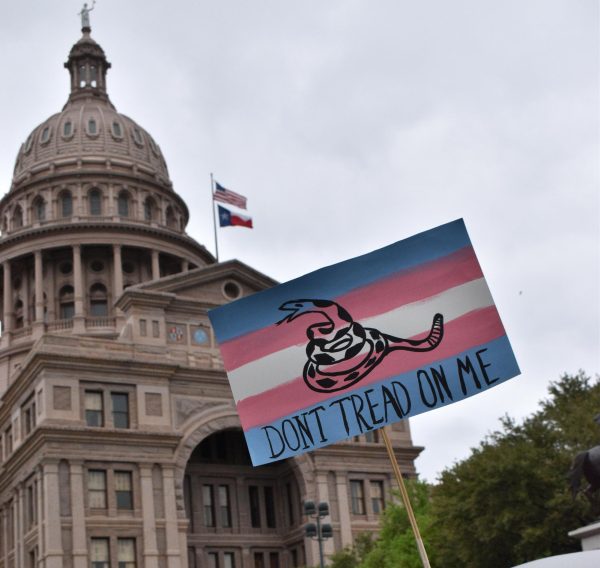TikTok Congress Hearings In Full Swing
On March 23, 2023 at 10 am, Shou Chew, TikTok’s CEO, was called on the behalf of the social media platform TikTok in front of the House Committee on Energy and Commerce in congress. TikTok was being held on trial for its alleged connections with the Chinese Government, the dangers it has posed to children and its overall invasion of privacy.
“American people are powerless to stop this invasion of privacy,” Chairwoman Cathy McMorris Rodgers said. “Banning [the TikTok] platform will address the immediate threat.”
In America, there are 150 million people that use TikTok. Congress is especially concerned as to how these 150 million people’s data are being collected, and if it has any ties with the Chinese government. Chew introduced a plan called Project Texas, which is a project that will move all of TikTok’s users’ data to Austin, Texas. By doing so, all of the data will be subject to U.S. law and under the protection of American security.
“All protected U.S. data will be under the protection of U.S. law and under the control of the U.S. led security team,” Chew said. “This eliminates the concern…that TikTok user data can be subject to Chinese law.”
TikTok is a very loved platform in America. With 5 million businesses advertising on the platform and 130 million people using TikTok every month, banning TikTok would no doubt upset some U.S. citizens.
“Our app is a place where people can be creative and curious,” Chew says. “TikTok will be a place for free expression and will not be manipulated by any government.”
Although many American users love TikTok, some are happy about the possibility of it being banned, mainly because of the platform’s addictive tendencies.
“It’s an addicting app, so it makes sense that it [could be banned], but I’m [also] kind of addicted, so I’m kind of sad,” sophomore Reagan Castleberry said.
Students agree that TikTok is time consuming and addictive because of its algorithm that is designed to convince people to consistently use the app.
“TikTok is addictive because that is what they made the app to be,” sophomore Ben Keating said. “I think that it’s a waste of time”
Along with students, Congress is also concerned with the amount of time that children spend consuming TikTok content.
“The platform is designed to push content to users [so that they’ll] watch more frequently and for longer periods of time,” Congressman Paul Tonko said.
TikTok is known to be an addictive app because of its endless entertainment and enjoyment that it brings to its users. Its algorithm is designed to push content that the user will enjoy, causing people to spend long periods of time on the app.
“The human brain is on the other side of the screen drowning in algorithms,” Congressman John Sarbanex said.
Along with being concerned about TikTok’s addictive tendencies, Congress is also concerned about its alleged connection to the Chinese government.
“TikTok is a weapon [used] by the Chinese Communist Party to spy on you, manipulate what you see and to exploit for future generations,” Congressman Rogers said. “A data privacy bill is the only way to stop TikTok from ever happening again in the United States.”
Throughout the trial, TikTok and its parent company Bytedance have been repeatedly accused of being connected to the Chinese government, however Chew denies most of these allegations.
“Since I have been CEO of this company I have not had any discussions with Chinese government officials,” Chew said. “Byte dance is not owned or controlled by the Chinese government”
Congress also does not believe that TikTok is being very transparent with the U.S. or its users. They are concerned with TikTok’s effect on children not only because of TikTok’s addictiveness, but also its “bad” influence.
“The Chinese Communist Party is engaged in psychological warfare through TikTok [and is trying to] deliberately influence U.S. children,” U.S. Representative Buddy Carter said.
Throughout the trial, Congress has attempted to bring attention to dangerous challenges, the negative influences that TikTok pushes on its algorithm that encourages negative material and physical health effects on children. They are worried about the Chinese Communist Party manipulating them and pushing negative material.
“[TikTok’s] technology is literally leading to death,” Congressman Gus Bilirakis said. “We must save our children from big-tech companies like [TikTok] who continue to abuse and manipulate them for [TikTok’s] own gain.”
Challenges such as the blackout challenge, which is a challenge that promotes kids to pass out, the nyquil chicken challenge where people are influenced to cook chicken in nyquil, and other dangerous challenges are one of the reasons why Congress is so concerned about U.S. children safety on TikTok. They claim that TikTok is a very dangerous app that encourages dangerous behavior in children through its content.
“[The TikTok] algorithms have prioritized providing harmful content directly to children,” Bilirakis said.
Students that deliberately avoid TikTok agree that it is a harmful app that children should not be exposed to.
“I feel like a lot of kids just have TikTok when they’re not ready for it yet,” Sophomore Allison Howitt said. “The fact that other countries could be tracking children is not safe.”
Congress is very concerned about the mental and physical health effects that TikTok content may have on children, however Chew assures Congress that TikTok works very hard to remove harmful content from its platform.
“We do take these issues very seriously,” Chew says. “Child abuse is not allowed on our platform at all; its deplorable conduct.”
Chew assures Congress that TikTok has taken many protective safety measures such as putting in place a system that leads users to help and resource pages when they type in triggering keywords, having a system that detects and takes down harmful content and systems that allow parents to manage their child’s screen times.
“If a user searches… words that express mental health issues, we actually redirect them to a safety page,” Chew said.
Overall, TikTok is being challenged because of its alleged ties to the Chinese Government and its negative health effects that it is said to have on its users. It is also being challenged because of Congress’ concern that it invades user privacy and data. The trial ended with Rogers addressing that Congress members can still ask Chew questions, but overall Congress was not swayed into believing that TikTok is not connected with the Chinese Communist Party, and that TikTok is not a major threat to America.






